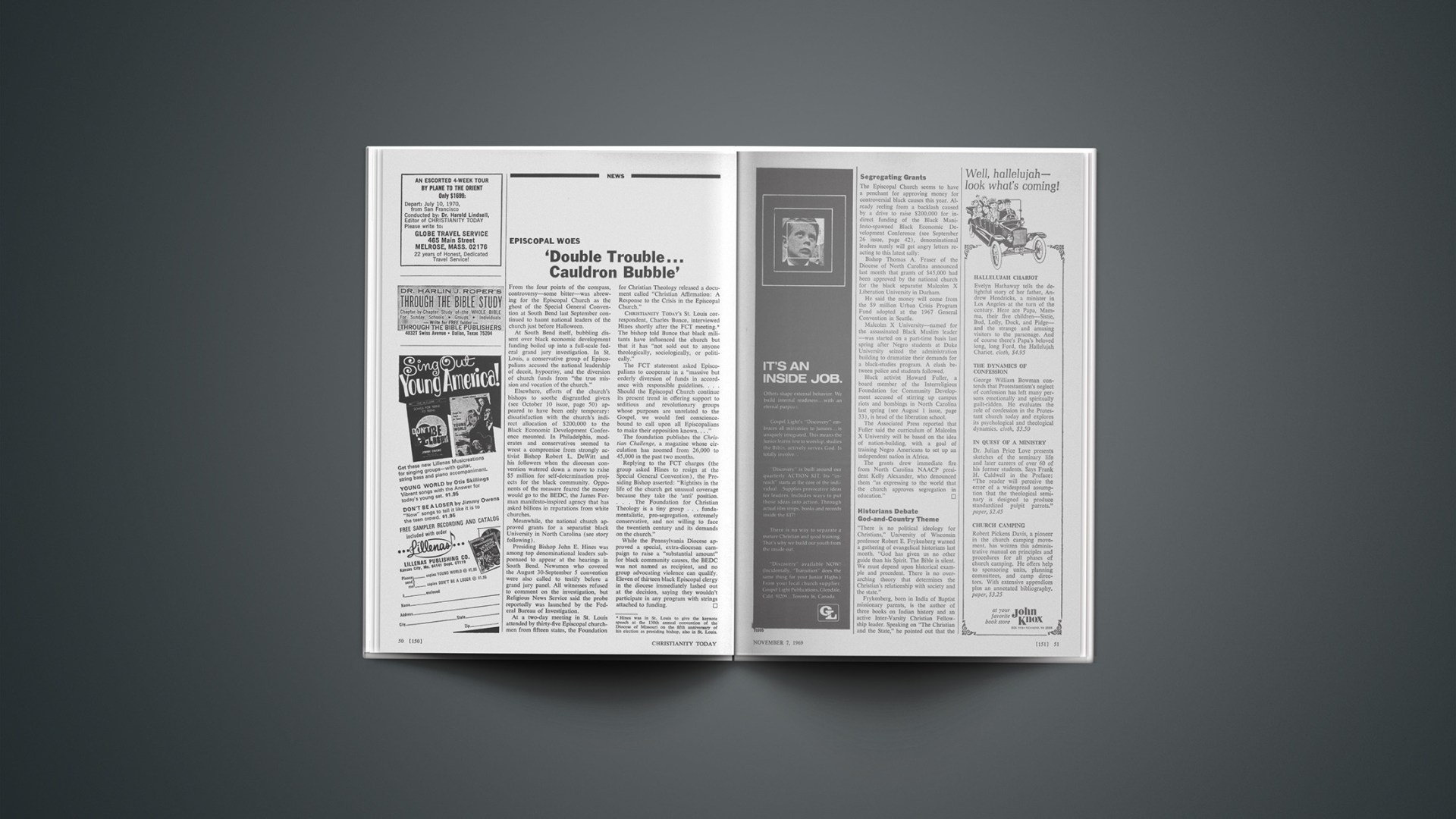Although it was a hopeless confusion of languages and ambitions from the start, the meeting of Europe’s reformist Roman Catholic priests held at the same time as the official Synod of Bishops in Rome last month was a real slap in the face of the Vatican and the Pope. (A report on the synod will appear in the November 21 issue.) Nothing like the meeting of the European Assembly of Priests had ever happened in the history of the Roman church. But the opportunity for the emergence of a loyal but effective opposition was lost, primarily because of the differing local conditions of the national priests’ delegations, and at least in part because of the poor organization of the priests themselves.
The week-long meeting of the rebel priests, who disclaim such descriptions as “rebel” or “dissident,” ran concurrently with the first week of the Synod of Bishops at the Vatican, and was the target for ugly pro-Vatican reaction.
The meetings opened on Waldensian (Protestant) Church property, where a group of young Italians calling themselves Traditional Catholics were arrested for throwing a smoke bomb and breaking windows at the church bookstore. As the week progressed, a counter group of “rebels” announced itself. A coalition of various rigidly conservative groups, it took the name Una Voche (One Voice), and its only purpose was to issue denunciations of activities of the priests’ assembly.
Some Una Voche leaders are so conservative in their defense of the Roman church that they are remembered for calling Pope Paul a liberal and accusing him of heresy. The press was not allowed to cover the sessions of Una Voche, and the one newsman who managed to sneak in (he was later thrown out) remarked: “It stinks of the Inquisition in there.”
As the meeting of the rebel priests progressed, it became increasingly clear that they wouldn’t be able to form a working international organization—mainly because of their lack of unity. They represented France, Belgium, Holland, Germany, Italy, Portugal, and three delegations from Spain. Those from the more progressive countries of Holland, Belgium, and Germany wanted to get on with action programs within the church, but others from Spain and Portugal were afraid of that.
In addition, the rebels wanted to avoid any bad publicity while in Rome. If they were to be attacked verbally or physically, they wanted to remain passive and forgiving. Their main reason for this was their desperate hope to win the favor of the huge community of priests in Europe. Sixty per cent of all Catholic priests are in Europe, and the rebels felt their main purpose in the meeting was to speak to those thousands of European priests and to demonstrate the need for church reform.
While it will take time to assess the success of the rebels in reaching Europe’s priests, one tangible asset from their meetings is the construction and approval of a document of beliefs that reads as though it might have been written by Luther, Zwingli, or Hus. It is, by any standard of judgment, a reformation document.
The statement calls for: A Catholic Church free of the total authority of the Pope, decisions made on the local level by laymen as well as by clergy, and the opportunity for personal guidance of the faithful by the Spirit of God rather than by the direction of a priest as he sees the will of God. Systematic in its approach to reform for every major area of the church, it lays the foundation for a pattern of worship and life that could be truly universal.
But the position paper does more than talk about the role of the church and the clergy; it also reveals the political interest of its writers. It insists on church involvement in certain non-spiritual matters. These include current favorites such as the population explosion and the emerging countries. More interesting is the part that lists such dangers as: “economies based solely on the profit motive … culture tied to commercial interest … world armament policy … social discriminations … the incapacity of the present international political system to insure effective peace.”
At least half the paper is purely political. After calling for total reformation of the Roman Church, it lays the political base for a one-world culture.
Many of the young dissident priests at the Rome meeting insisted that the combination of a single world church and a single world government is the only temporal salvation for man. Their opinions are shared by John Cardinal Wright of Pittsburgh, who is now a member of the Roman Curia. A champion of the conservative and traditional in church matters, Wright readily admits he is a leftist politically, and longs for the coming of a world government with a universal church to go along with it.
The political aspect of the rebels’ cause gives them the most hope for the future. They desperately need the support of Europe’s priests, and some high-level support from within the church. Common political ground may provide this link.
BRIAN BASTIEN










